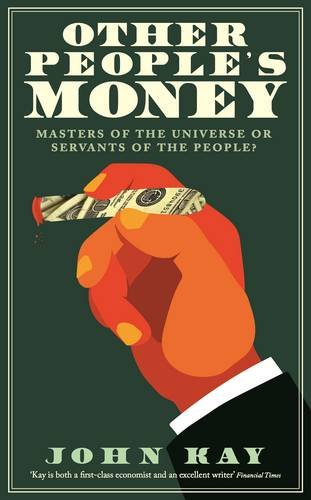Cohen-Setton, Jeremie, (2015), “The triumph of backward-looking economics”, Bruegel publications, 7 Σεπτεμβρίου What’s at stake: At a time when monetary policy makers have a hard time generating inflation despite credible monetary regime changes (e.g. Japan), it is tempting to argue that there is simply substantial inertia in inflation. In this modern version of the old debate about the relative merit between rational and adaptive expectations, the reinterpretation of Reagan-Volker era …Read More
Bank bailouts, monetary policy, and credit default risks in the Eurozone
Rieth, Malte, Fratzscher, Marcel, (2015), “Bank bailouts, monetary policy, and credit default risks in the Eurozone”, Voxeu, 6 Σεπτεμβρίου In a response the Crisis, the ECB provided liquidity to banks on a massive scale and intervened in sovereign debt markets. This column argues that bank bailout policies and non-standard monetary policies by the ECB had a significant impact on default risks of sovereigns and banks in the Eurozone. The results, however, show that …Read More
The Eurozone crisis has deeply eroded the EU’s accountability structures
Dawson, Mark, (2015), “The Eurozone crisis has deeply eroded the EU’s accountability structures”, LSE blog, 7 Σεπτεμβρίου Greece’s confrontation with the Eurozone seems to follow a familiar pattern. We start with a realisation, often confirmed by leaked IMF reports, that the latest round of financial assistance is not working. First the blame game: for creditor countries and their commentariat supporters, it is because reforms have not been properly implemented; for …Read More
Europe’s Economy Needs Action, Not Words
Bloomberg View, (2015), “Europe’s Economy Needs Action, Not Words”, 4 Σεπτεμβρίου European Central Bank President Mario Draghi is something of an expert at moving markets by doing nothing, and he showed his prowess again yesterday. He said the ECB stands ready to stimulate Europe’s sluggish economy further, but has no plans to do so right now. That was seen as dovish, so European stocks advanced, euro bond-yields declined, and the …Read More
Will Oil Cause the Next Recession?
Shilling, Gary, (2015), “Will Oil Cause the Next Recession?”, Bloomberg View, 2 Σεπτεμβρίου If oil prices take another dramatic slide, as I believe they will, who wins and who loses? And could plummeting oil prices sow the seeds of the next recession?Oil-importing countries are obvious winners from falling crude prices. That includes the U.S., where — despite a surge in domestic production — imports still account for nearly 50 percent of petroleum consumption. Σχετικές Αναρτήσεις Gomez, …Read More
Entrepreneurship at a Glance 2015
OECD, (2015), Entrepreneurship at a Glance 2015, OECD Publishing, Paris, Άυγουστος. Executive summary Entrepreneurship at a Glance contains a wide range of internationally comparable measures of entrepreneurship designed to inform analysis and policy on entrepreneurship and entrepreneurs, reflecting their important contribution to innovation, employment and growth. Start-up rates have been on an upward trend since the crisis in many countries, particularly in Australia and the United Kingdom, and more recently in Denmark, Portugal and Sweden. In …Read More
Other People’s Money: Masters of the Universe or Servants of the People?
Kay, John, (2015), Other People’s Money: Masters of the Universe or Servants of the People?, Profile Books, 3 Σεπτεμβρίου. We all depend on the finance sector. We need it to store our money, manage our payments, finance housing stock, restore infrastructure, fund retirement and support new business. But these roles comprise only a tiny sliver of the sector’s activity: the vast majority of lending is within the finance sector. So what is …Read More
Greece shows the flaws in pursuing a common monetary policy response to economic shocks across the EU
Morley, Bruce, (2015), “Greece shows the flaws in pursuing a common monetary policy response to economic shocks across the EU”, LSE blog, 2 Σεπτεμβρίου. To what extent is the Greek debt crisis a function of wider flaws in the design of the single currency? Bruce Morley writes that while Greece’s debt already exceeded 100 per cent of GDP in the 1990s, it is not simply the size of a country’s debt …Read More
Why is China finding it hard to fight the markets?
Garcia Herrero, Alicia, (2015), “Why is China finding it hard to fight the markets?”, Bruegel publications, 31 Αυγούστου China’s market drama started in June this year with the collapse of the Shanghai stock exchange, followed by frantic interventions by the Chinese authorities. As if the estimated $200 billion already spent on propping up stock prices were not enough, China found itself in another battle with the market, defending the RMB …Read More
The global trade slowdown puzzle
Cohen Setton, Jeremie, (2015), “The global trade slowdown puzzle”, Bruegel publications, 31 Αυγούστ0υ What’s at stake: This week’s data renewed concerns about developments in global trade as it showed for the last 6 months the biggest contraction in global trade since the end of the financial crisis. While cyclical factors may be at play, trade specialists have also advanced a host of structural explanations to explain the decline in the …Read More





